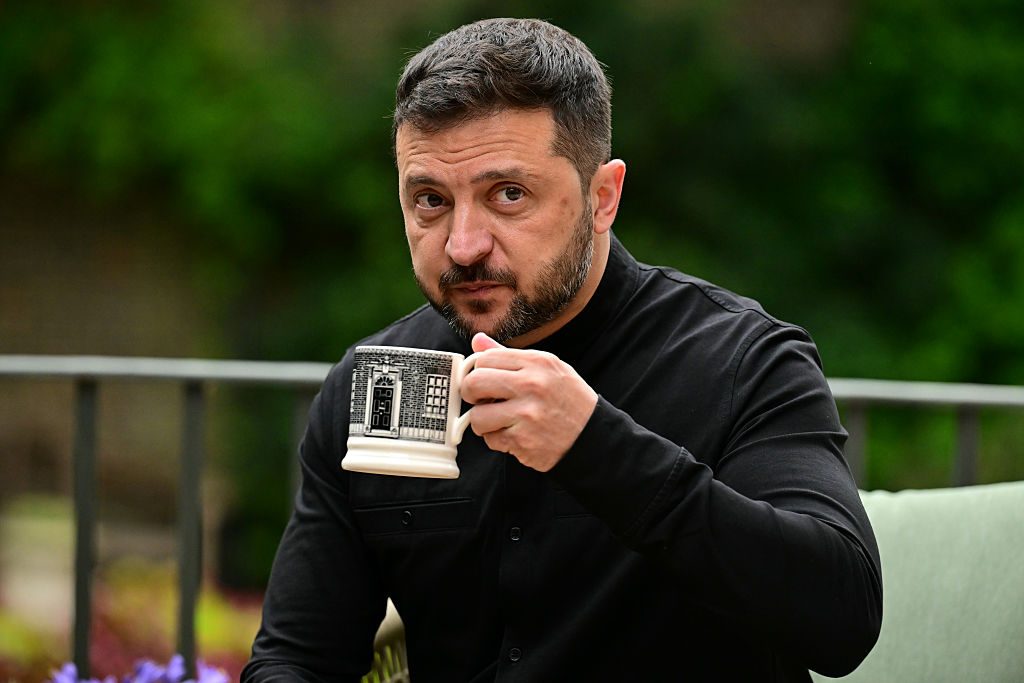After February’s Oval Office showdown, European leaders striving to mend the rift between Donald Trump and Volodymyr Zelensky persuaded the Ukrainian leader to address his US counterpart more respectfully. One wonders, then, in what courteous, reverential tones Zelensky will couch a series of pressing questions at today’s meeting in Washington.
Namely, why did Trump literally roll out the red carpet for the man who invaded Zelensky’s country and personally endeavoured to overthrow his government and have him executed? Why did Trump, having reassured Ukrainian and European leaders that he would use the threat of sanctions and “very severe consequences” to push Vladimir Putin into a ceasefire, immediately drop the idea in favour of the Kremlin’s preference for a peace agreement with no prior armistice? Why does the talk of those harsh sanctions now seem to be indefinitely postponed?
Yet such queries pale in comparison to the question that truly hangs over today’s meeting: what to do now? As European leaders and Zelensky flock to Washington in a bid to influence Trump, they may wish to reflect on the cautious optimism with which they left last week’s talks with the US leader. Following Friday’s Alaska summit, Europe and Ukraine are now fundamentally divided from the US in their approaches to ending this conflict.
It may be, however, that Trump is aping the Kremlin because Putin gave him a dose of reality. The US President is right that a ceasefire would not hold — for one thing, Moscow has a long history of breaking them. Besides, Ukraine’s motivation for desiring a truce followed by negotiations is obvious. In dire need of men for its front line and allies for its weaponry, a ceasefire would offer it much-needed respite from Russian advances. It would also provide an opportunity to restock while dragging out peace negotiations with Moscow in a bid to postpone difficult questions about territorial concessions.
While Russian advances may be slow and grinding, Moscow still has the initiative on the battlefield. The Kremlin will quite simply never surrender that bargaining chip. We have seen how Russia intensified its advances into Dobropillia before the Alaska summit in a bid to shape a narrative of being the victor, and similar tactics will surely be employed before any talks with Ukraine, in order to push Kyiv into bad terms. Putin likely impressed this upon Trump during their discussions, and the US President posted late last night on Truth Social that Zelensky “can end the war with Russia almost immediately, if he wants to, or he can continue to fight”.
The other point on which the Russian leader seemingly convinced his American counterpart was regarding the Ukrainian regions of Donetsk and Luhansk. Trump conveyed to Zelensky the Kremlin’s demand that Kyiv withdraw from the contested oblasts in return for Moscow freezing the front lines in Kherson and Zaporizhzhia. While Luhansk is almost entirely occupied by Russian forces, only 76.3% of Donetsk has been taken over and it is home to a string of heavily fortified areas crucial to Ukraine’s defence and military operations. Zelensky has himself remarked that abandoning the Donbas would mean opening “a bridgehead for preparing an offensive by the Russians. In a few years, Putin will have an open path to both the Zaporizhzhia and Dnipro regions. Also to Kharkiv.”
Besides the military aspects, Putin knows that an order from Zelensky to withdraw from the Donbas would also double up as his resignation letter. Images of the Ukrainian government ordering its own citizens to withdraw from vast stretches of populated territories to let the enemy occupy their homes would haunt him for the rest of his life and whatever short political career he would have left. Ukrainian activists have already warned of the domestic tensions such a move would unleash.
Zelensky battles for Trump’s attention as much as he does for Ukrainian land, and he faces an uphill struggle today in Washington. It may be that Putin’s interest in Donetsk is actually a desire to make Zelensky appear the obstacle to peace in Trump’s eyes, knowing the Ukrainian leader could never accept such severe terms. Putin’s talk of “root causes” suggests an unwillingness to back down from maximalist demands, including an end to Zelensky’s tenure. Whether that ploy has worked will become apparent today.











Join the discussion
Join like minded readers that support our journalism by becoming a paid subscriber
To join the discussion in the comments, become a paid subscriber.
Join like minded readers that support our journalism, read unlimited articles and enjoy other subscriber-only benefits.
Subscribe